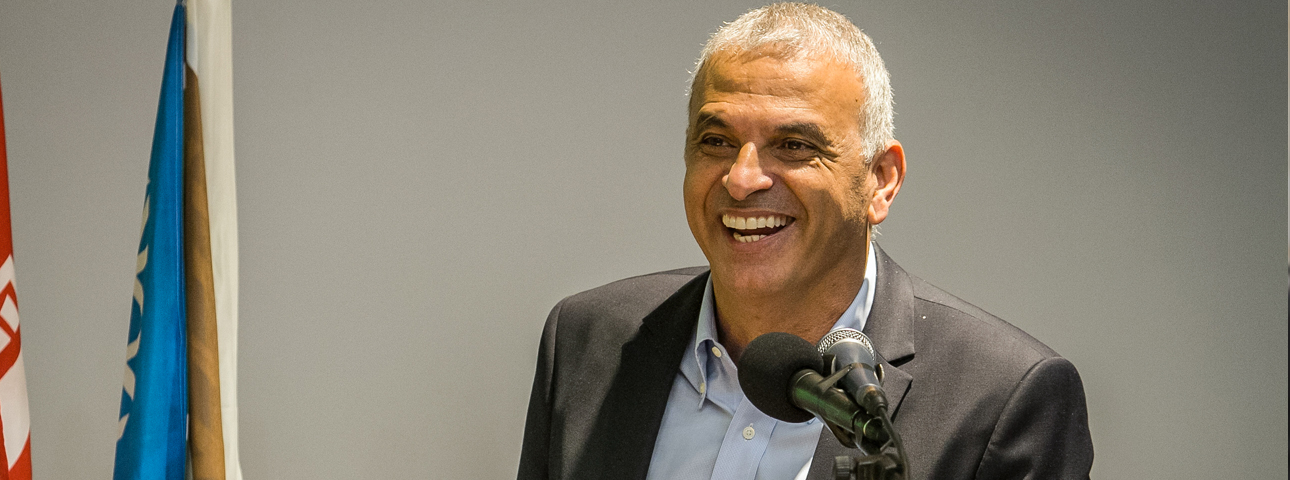The Constitutional Tug of War in the Outgoing Coalition
The 20th Knesset was the most injurious of all with regard to democratic values, freedom of expression, gatekeeping and, above all, minority rights. It compared negatively with preceding terms of the Knesset – even the 18th Knesset, which passed the notorious anti-boycott, Nakba and admission committee laws.

Finance Minister Moshe Kahlon | Flash 90
The crowning achievement of the outgoing Knesset’s deleterious legislation was the nation-state law. It will take years to analyze the shock waves that have rippled from the passage of this law, which as a Basic Law has quasi-constitutional status. This law defines Israel solely as a Jewish state, excludes the country’s non-Jewish minorities and seeks to shift the balance between its twin character as a nation-state and a democratic state. Even if the High Court of Justice succeeds in using its interpretive powers to prevent the nation-state law from violating the Basic Las on Human dignity and Liberty – that is, to block discrimination against non-Jews – that will not eliminate the noxious lesson that it teaches nor the negative message that it sends to both Jews and non-Jews in Israel.
The 20th Knesset also passed the so-called suspension law, an amendment to the Basic Law of the Knesset that allows a vote of 90 MKs to expel a lawmaker on grounds of having committed acts that are in fact already considered criminal offenses. In doing so, the legislature has made itself an investigator, prosecutor, judge and executor. Additional laws passed in the outgoing Knesset restrict the freedom of expression of human rights organizations (the so-called Breaking the Silence and nongovernmental organizations laws) or artists (the “film foundation law”).
It must be noted, however that the unbridled attack on the government’s gatekeepers – the courts, the ministries’ legal advisers, the police and the prosecutors – did not succeed. Finance Minister Moshe Kahlon should be singled out for praise in this context. He kept his word and stopped the most dangerous initiative yet devised by the school of Justice Minister Ayelet Shaked: the so-called override clause. This bill sought to turn High Court rulings into mere recommendations, allowing the Knesset to pass laws that contravene the Basic Laws with a simple majority of all MKs, 61 votes. The so-called legal advisers’ bill, which aimed to turn government legal advisers into political appointees, rather than professional gatekeepers, was not passed. Nor was the “French Law”, which would have prohibited the indictment of a sitting prime minister. The so-called recommendations law, barring the police from including recommendations about whether or not an official should be indicted when submitting their case report to prosecutors was significantly watered down. And we cannot forget that by telling the MKs of his Kulanu party that they were free to vote according to their consciences in the second and third rounds, Kahlon blocked the final approval by the Knesset of the terrible “loyalty in culture” law.
All of Israel’s recent governing coalitions have included a civil libertarian component that had a moderating effect: The 18th Knesset had cabinet ministers Benny Begin, Dan Meridor and Michael Eitan, as well as then-Knesset Speaker Reuven Rivlin, who is now the president of Israel. In the 19th Knesset, then Justice Minister Tzipi Livni and cabinet members of the Yesh Atid party delayed and blocked harmful legislative initiatives, including an earlier incarnation of the nation state bill. In the outgoing Knesset, this role was filled by Kulanu (with assistance from Begin, a Likud MK).
We can only hope the next coalition, too, will contain at least one party that will take up the liberal center-right banner and act as successors to Menachem Begin and Zeév Janotinsky, to fight for human liberty, minority rights, the rule of law and judicial independence and against unlimited powers of government. Such a party must demand – just as Kahlon did – the right to a veto in order to protect the courts and all the other gatekeepers before joining a coalition. That is the last stronghold in defending individual freedoms and minority rights in Israel.
The article was published in Haaretz.
- Tags:
- Rule of Law,
- Basic Law: Nation State,
- judicial activism,
- judicial review,
- Centrist parties,
- Elections 2019,
- Democracy in Defense,
- Elections,
- High Court of Justice,
- Israeli political system,
- democracy,
- ministers,
- Democratic Values and Institutions Program,
- Center for Democratic Values and Institutions
